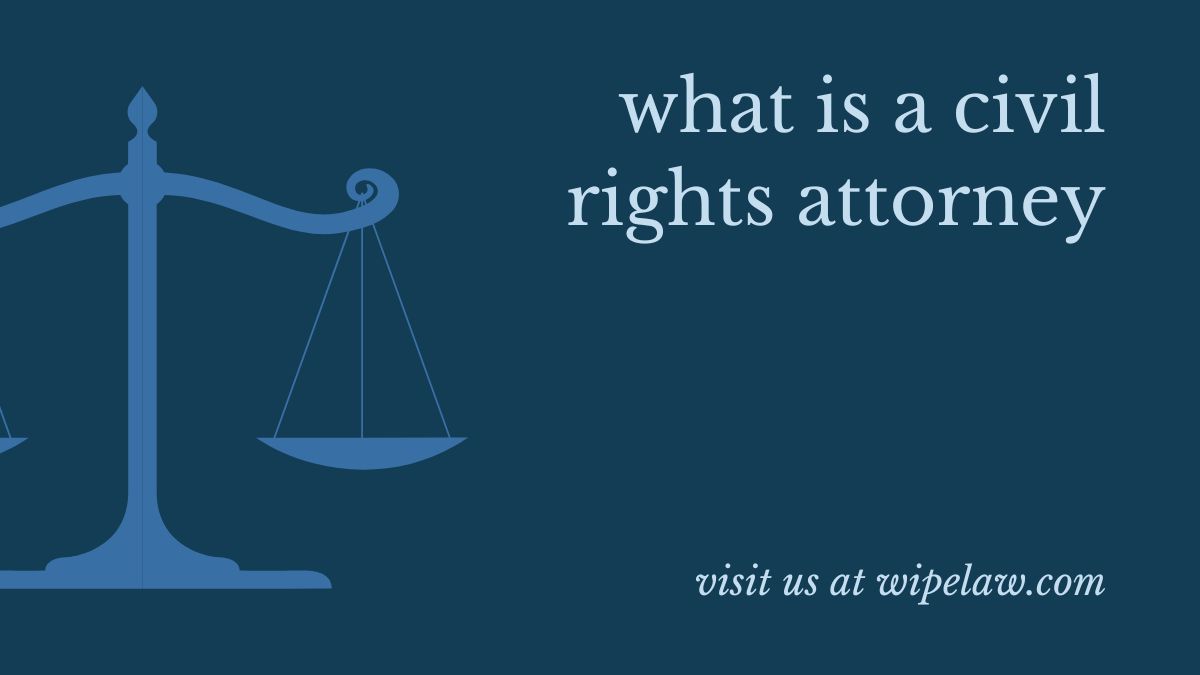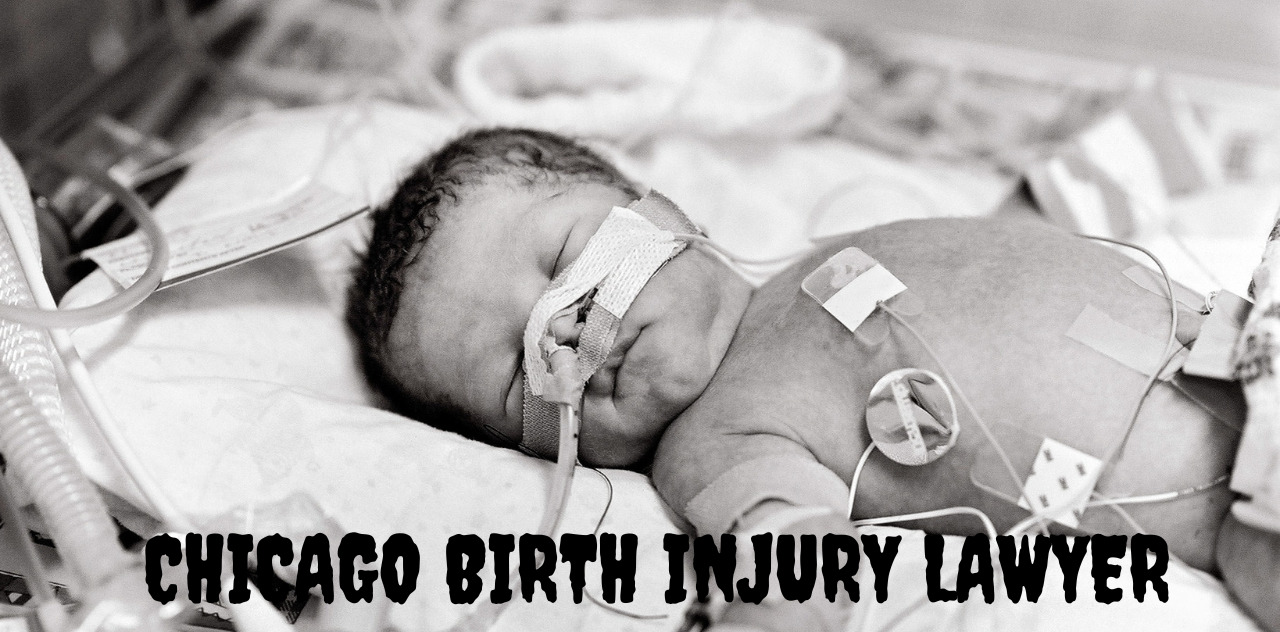Table of Contents
Because justice is not always guaranteed in this society, civil rights attorneys are essential in promoting equality and fairness. These attorneys focus on upholding people’s constitutional rights and ensuring that everyone is treated fairly, regardless of color, gender, religion, or other traits. However, what precisely is the role of a civil rights attorney, and why are they so crucial to our culture? Let’s examine the vital job of these justice advocates as we go into the realm of civil rights law.
The Role of a Civil Rights Attorney
Promoting Equality
A civil rights attorney’s dedication to promoting equality is at the core of their practice. These attorneys defend marginalized people and communities from injustices. They work relentlessly to guarantee that everyone’s rights are respected, whether due to racism, gender inequity, or sexual orientation.
Protecting the Rights Enumerated in the Constitution
Protecting constitutional rights is one of a civil rights attorney‘s primary responsibilities. This involves defending the liberties enumerated in the United States Constitution, including the freedom of expression, of religion, and the entitlement to due process. Civil rights attorneys come in to fight laws, rules, or practices that violate fundamental rights when they are threatened.
Facing Down Discrimination
Fighting prejudice is another essential component of a attorney’s work. This can involve discrimination in the workplace, in housing, and elsewhere. Legal action against discriminatory practices is one way these attorneys contribute to developing a more equitable and inclusive society.
Representing Individuals Hurt by Police Misbehavior
Police misbehavior has grown to be a severe problem in recent years. Civil rights attorneys represent victims of erroneous arrests, police brutality, and other wrongdoing. They seek justice for the harmed parties and strive to hold law enforcement officials responsible.
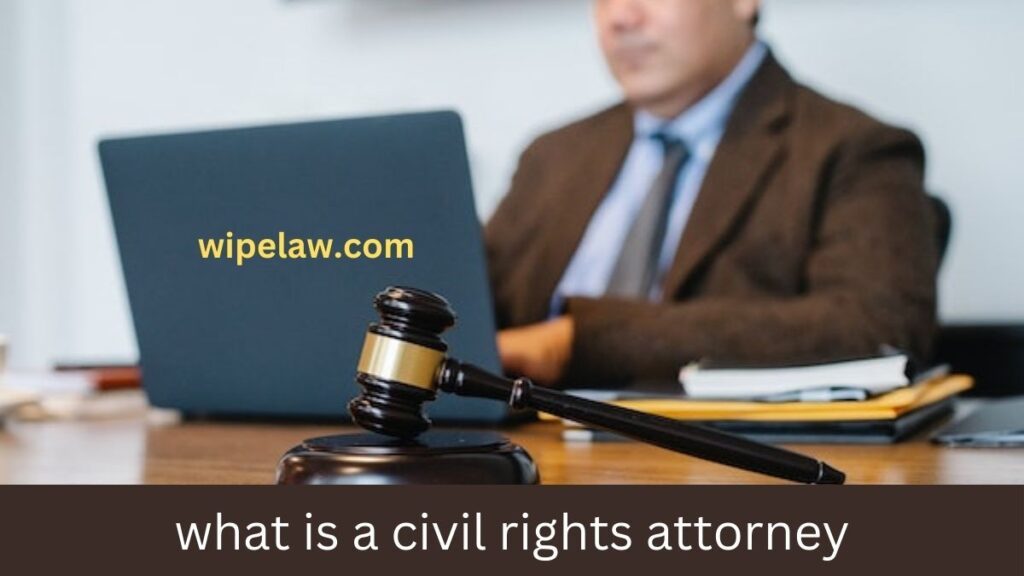
Types of Cases Handled by Civil Rights Attorneys
Discrimination in Employment
Cases of employment discrimination concern inequitable treatment in the workplace due to protected characteristics such as age, gender, race, or handicap. Attorneys specializing in civil rights assist clients in filing complaints, settling disputes amicably, and, if required, taking cases to trial.
Discrimination in Housing
When someone is refused housing options because of their race, religion, national origin, or other characteristics, this is known as housing discrimination. Attorneys for civil rights fight against discriminatory policies and promote fair housing standards.
Discrimination in Education
In education, civil rights attorneys deal with concerns such as discriminatory disciplinary proceedings, unequal access to educational resources, and more. Their goal is to guarantee that every student has an equal chance at success.
Police Misconduct and Brutality
Civil rights attorneys frequently represent victims of police misbehavior and brutality, as was previously indicated. These situations can be emotionally and legally complicated, necessitating a thorough comprehension of social and legal issues.
First Amendment Privileges
Another crucial area for civil rights attorneys is defending First Amendment rights, such as the ability to assemble and speak freely. When someone or a group exercises these rights and is subject to censorship or reprisal, they stand up for them.
Rights of Disability
The rights of people with impairments are another area of focus for civil rights attorneys. This entails ensuring that people have access to public places, accommodations at work, and equitable treatment in all facets of life.
Qualifications and Skills Required
Background in Education
A bachelor’s degree is a prerequisite for becoming a civil rights attorney, followed by a juris doctor degree. A solid academic foundation in law, especially constitutional and civil rights law, is imperative.
Proficiency and Knowledge in Law
Attorneys specializing in civil rights must possess superior legal knowledge. This entails thoroughly understanding civil rights laws, constitutional law, and court decisions. They must also be proficient in writing, oral advocacy, and legal research.
Communication Proficiency and Empathy
Because of their delicate nature, communication skills, and empathy are essential in civil rights lawsuits. Attorneys need to be able to relate to their clients, comprehend their experiences, and explain complicated legal ideas in a way that is easy to understand.
hunger for justice
The most crucial characteristic of a attorney is a desire for justice. These experts frequently deal with complex and emotionally exhausting cases; their steadfast dedication to justice aids in their persistence.
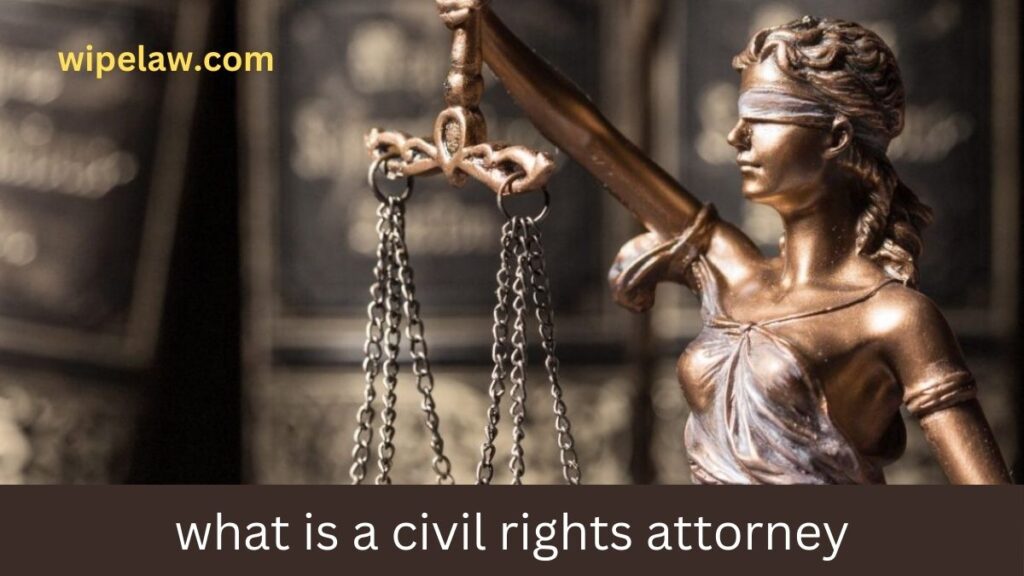
How to Become a Civil Rights Attorney
Pathway to Education
An excellent educational foundation is the first step to becoming an attorney. A bachelor’s degree in a related subject, such as political science, history, or sociology, is recommended for aspiring attorneys.
Specialization and Law School
After receiving a bachelor’s degree, aspiring attorneys must attend law school. Students might concentrate on civil rights, constitutional law, and public interest law courses in law school. Engaging in civil rights-focused internships and clinics can also yield beneficial experiences.
Getting Knowledge
Being an influential attorney requires experience. This can involve engaging in pro bono work, working for civil rights organizations, and accumulating litigation experience in relevant disciplines.
Getting Approved
Lastly, passing the state bar test is a requirement for practicing law. Additionally, some states could demand extra credentials or certificates for attorneys.
Challenges Faced by Civil Rights Attorneys
Mental and Emotional Cost
Taking on civil rights disputes might present mental and emotional difficulties. It can be challenging to navigate dealing with clients who have suffered severe pain and injustice, as attorneys frequently do.
Case Complexity
Legal complexity in civil rights issues can necessitate a thorough comprehension of numerous legal precedents and ideas. Even seasoned attorneys may find this intricacy challenging to navigate.
Systemic Obstacles
Civil rights attorneys frequently encounter systemic obstacles, including pervasive prejudice and discrimination in the legal and political systems. Perseverance and resilience are necessary to overcome these challenges.
Public Inquiry and Disagreement
Due to the divisive nature of many civil rights matters, attorneys may encounter public scrutiny and criticism. This can originate from several sources, including the people, public authorities, and the media.
Famous Civil Rights Attorneys and Landmark Cases
Marshall Thurgood
The historic case of Brown v. Board of Education, which Thurgood Marshall, a trailblazing civil rights attorney, argued, resulted in the desegregation of American public schools.
Ginsburg, Ruth Bader
Ruth Bader Ginsburg was a trailblazing attorney before she was appointed to the Supreme Court. She advocated for women’s rights and gender equality, arguing several important cases before the Supreme Court.
Stevenson Bryan
Modern civil rights attorney Bryan Stevenson is well-known for his work with the Equal Justice Initiative. He has battled for criminal justice reform, especially for death row inmates, and against racial injustice.
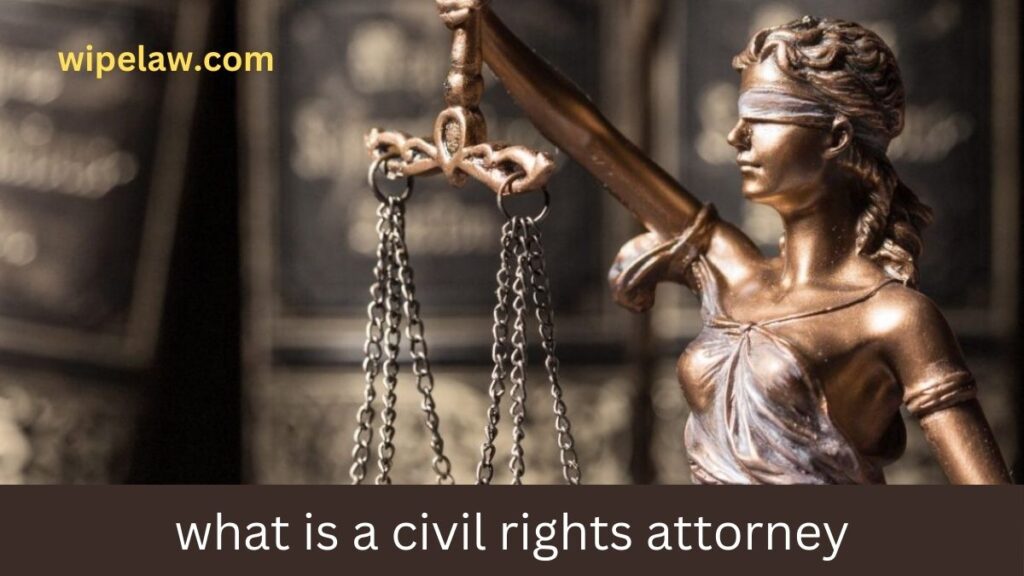
The Impact of Civil Rights Attorneys
Developing Public Policy
Civil rights attorneys significantly shape public policy. They impact laws and policies that uphold people’s rights and advance equality through advocacy, litigation, and public education.
Promoting Social Change
In terms of promoting social change, these attorneys are leaders. By opposing discriminatory behaviors and standing out for underrepresented groups, they contribute to developing a fairer and more equal society.
Developing Underprivileged Communities
Civil rights attorneys empower marginalized communities by giving them a voice and advocating for their rights. This empowerment may result in a higher standard of living and more social and political engagement.
Conclusion
In a world where inequality and injustice persist, civil rights attorneys are essential advocates for fairness and equality. They defend constitutional rights, challenge discrimination, and work to create a more just society. If you’re passionate about justice and equality, a career in civil rights law can be incredibly rewarding. Whether you’re interested in protecting free speech, fighting against discrimination, or advocating for marginalized communities, there are many opportunities to make a difference.
FAQs
What distinguishes a criminal defense attorney from a civil rights attorney?
While criminal defense attorneys defend those accused of crimes, civil rights attorneys concentrate on instances involving discrimination and constitutional rights abuses.
How much do attorneys for civil rights get paid?
Attorneys specializing in civil rights may be paid hourly, on a contingency basis, or by charitable organizations.
Can a civil rights attorney assist with discrimination in the workplace?
Civil rights attorneys can help with employment discrimination claims involving disability, race, and other factors.
When selecting a civil rights attorney, what qualities should I consider?
Seek for experience, a history of success comparable to yours, empathy, and practical communication abilities.
Are attorneys for civil rights only involved in well-known cases?
Civil rights attorneys deal with various instances, from well-known lawsuits to routine problems affecting people’s rights.

